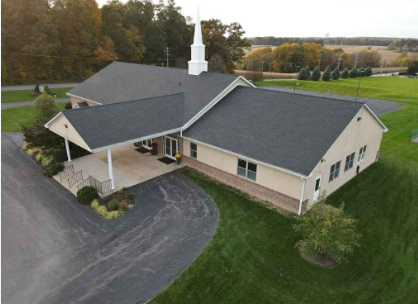Roof installation can be a substantial investment, and it’s important to plan and budget accurately to avoid unpleasant surprises. Whether you’re building a new home in Pennsylvania or simply replacing an old roof, a strategic budget can be your best ally. But how exactly do you budget for a roof installation?

Understanding the Basics of Roof Installation
Materials
The choice of roofing materials directly impacts the cost of your project. Asphalt shingles are commonly used due to their affordability, while metal or slate roofing tend to cost more but offer higher durability.
Labor Costs
The complexity of the job, the contractors you hire, and the local labor rates all affect the overall labor costs for roof installation.
Factors Influencing the Cost of Roof Installation
Roof Size and Complexity
The larger and more complex your roof, the more materials and labor it will require, leading to increased costs.
Roofing Materials
Materials range from relatively cheap asphalt shingles to more expensive options like metal, slate, or tile. The choice depends on your budget, the climate, and your aesthetic preferences.
Labor Rates
The cost of labor can significantly fluctuate depending on the geographical area, the particular contractor chosen, and the intricacy of the task at hand.
How to Create a Budget for Roof Installation
Research
Begin with thorough research. Understand the average costs of roof installation in your area and the specific factors that could affect your project’s cost.
Get Several Estimates
Reach out to multiple contractors for estimates. This will give you a ballpark figure to work with and help you identify if a quote is significantly overpriced or suspiciously low.
Plan for Unexpected Costs
It’s wise to set aside an additional 10-20% of the total estimated cost for unexpected expenses. This could cover unforeseen damages, extra labor, or other contingencies.
Potential Extra Costs
Removal and Disposal of Old Roofing
The condition of your existing roof can influence additional expenses associated with the removal and disposal of outdated materials.
Required Roof Repairs
In case your roof has underlying problems like decay or structural damage, necessary repairs must be conducted prior to the installation of new roofing. These repairs will contribute to the overall project expenditure.
Conclusion
Budgeting for a roof installation in Pennsylvania can feel daunting, but with the right knowledge and preparation, you can effectively plan for this major investment. Remember to consider all the potential variables, from material and labor costs to the size and complexity of your roof.
Frequently Asked Questions
What is the average cost of a new roof in Pennsylvania?
The expense can significantly differ based on various factors, although typically, a reasonable estimate would range from $5,000 to $10,000.
How long does it take to install a new roof?
For simpler tasks, completion may require a few days, while more intricate projects could extend to a week or beyond.
Can I install a new roof myself to save money?
While it’s technically possible, roof installation is a complex, risky job that is typically best left to professionals.
What is the most affordable roofing material?
Asphalt shingles are generally the most affordable option, though the specific cost can vary based on the brand and type.
Is it cheaper to repair or replace a roof?
It depends on the extent of the damage. Minor issues may be cheaper to repair, but a roof in poor condition or near the end of its lifespan may be more cost-effective to replace entirely.




